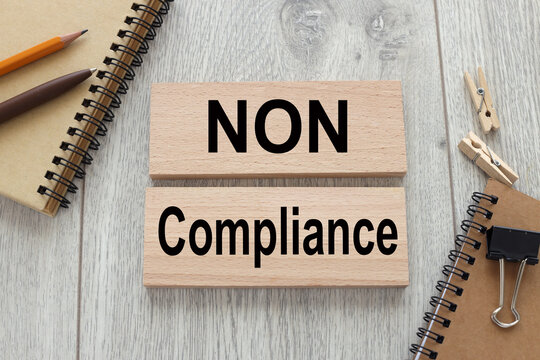

User Intent
Users searching for this topic likely want to understand whether a business without GST registration can issue a tax invoice. They may be business owners, entrepreneurs, or accountants looking for legal clarity. This article provides a step-by-step explanation, covering definitions, applications, benefits, limitations, and comparisons.
Introduction
Tax invoices play a crucial role in business transactions, ensuring compliance with taxation laws. However, not all businesses are registered under the Goods and Services Tax (GST). A common question arises: Can a non-GST registered company issue a tax invoice? Understanding the legal framework is essential to avoid penalties and ensure compliance. In this article, we will explore whether such companies can issue tax invoices, alternative documentation, and how businesses should proceed.
Definition
A tax invoice is a document issued by a supplier registered under GST that allows the buyer to claim an Input Tax Credit (ITC). It includes details like GSTIN, invoice number, taxable value, and GST amount.
A non-GST registered company refers to a business that has not obtained a GST registration, either because its turnover is below the prescribed threshold or because it deals in exempted goods/services.
Application in Detail
A non-GST registered company cannot legally issue a tax invoice because it does not have a GSTIN and cannot collect GST from customers. However, it can issue other types of invoices:
- Bill of Supply – Used by businesses dealing in exempted goods/services or falling under the composition scheme.
- Proforma Invoice – A preliminary bill indicating estimated charges but not valid for tax claims.
- Commercial Invoice – A standard invoice used for general transactions without GST implications.
How Should a Non-GST Registered Business Invoice Clients?
- Clearly state “GST Not Applicable” on invoices.
- Avoid mentioning GST components like CGST, SGST, or IGST.
- Use a bill of supply instead of a tax invoice.
- Maintain proper records to justify non-GST registration status.
Benefits in Detail
Operating without GST registration has several advantages for small businesses:
1. Ease of Compliance
- No need to file monthly or quarterly GST returns.
- Reduced administrative burden and bookkeeping requirements.
2. Cost Savings
- Avoid expenses related to GST registration, filing, and professional fees.
- No risk of penalties for late GST payments.
3. Competitive Pricing
- Lower prices for end consumers as GST is not added.
- Helps attract cost-sensitive customers.
4. Flexibility in Business Operations
- Easier to operate in rural or small-scale industries.
- Less regulatory scrutiny compared to GST-registered businesses.
Limitations in Detail
While there are benefits, non-GST registered companies face certain disadvantages:
1. No Input Tax Credit (ITC)
- Businesses cannot claim ITC on purchases, increasing costs.
2. Restricted Business Transactions
- Larger companies prefer dealing with GST-registered vendors.
- Loss of business opportunities with GST-compliant customers.
3. Limited Growth
- Inability to expand beyond turnover thresholds without mandatory GST registration.
- Restrictions on interstate sales due to GST rules.
4. Legal Restrictions on Tax Invoice Issuance
- Cannot issue tax invoices legally.
- Risk of penalties if falsely issuing tax invoices with GST.
Comparative Table: Tax Invoice vs. Bill of Supply
| Feature | Tax Invoice (GST Registered) | Bill of Supply (Non-GST Registered) |
|---|---|---|
| GST Applicability | Yes | No |
| Input Tax Credit (ITC) | Can be claimed | Cannot be claimed |
| Document Type | Mandatory for GST dealers | Used for exempt/non-GST dealers |
| Mention of GST | Yes | No |
| Legal Compliance | GST Act | General Business Law |
Conclusion
A non-GST registered company cannot issue a tax invoice under any circumstances. Instead, it should use a bill of supply or a commercial invoice while ensuring GST is not collected. While operating without GST registration has benefits such as reduced compliance and cost savings, it also has limitations, including no ITC claims and restricted business growth. Therefore, businesses should evaluate their long-term goals before deciding on GST registration.
Frequently Asked Questions (FAQs)
1. Can a non-GST registered company charge GST?
No, a non-GST registered company cannot collect or charge GST. Doing so is illegal and subject to penalties.
2. What happens if a non-GST business issues a tax invoice?
Issuing a tax invoice without GST registration is a violation of GST laws and can lead to heavy fines and legal consequences.
3. Can a non-GST registered business sell to a GST-registered buyer?
Yes, but the buyer cannot claim ITC on such purchases as no GST is charged.
4. Should a small business voluntarily register for GST?
If a business plans to scale or deal with GST-registered entities, voluntary GST registration can be beneficial.
5. What is the alternative to a tax invoice for non-GST companies?
A bill of supply should be used instead of a tax invoice for legal compliance.
For site: https://www.gst.gov.in/
Contact:Â Â Â Â 8130555124, 8130045124

Whatsapp:Â Â https://wa.me/918130555124
Mail ID:Â Â Â Â Â Â operations@vibrantfinserv.com
Web Link:Â Â Â https://vibrantfinserv.com
FB Link:Â Â Â Â Â Â https://fb.me/vibrantfinserv
Insta Link:Â Â https://www.instagram.com/vibrantfinserv2/
Twitter:Â Â Â Â Â Â https://twitter.com/VibrantFinserv
Linkedin:Â Â Â https://www.linkedin.com/in/vibrant-finserv-62566a259/
For further details visit:Â https://vibrantfinserv.com/service-detail-8.php